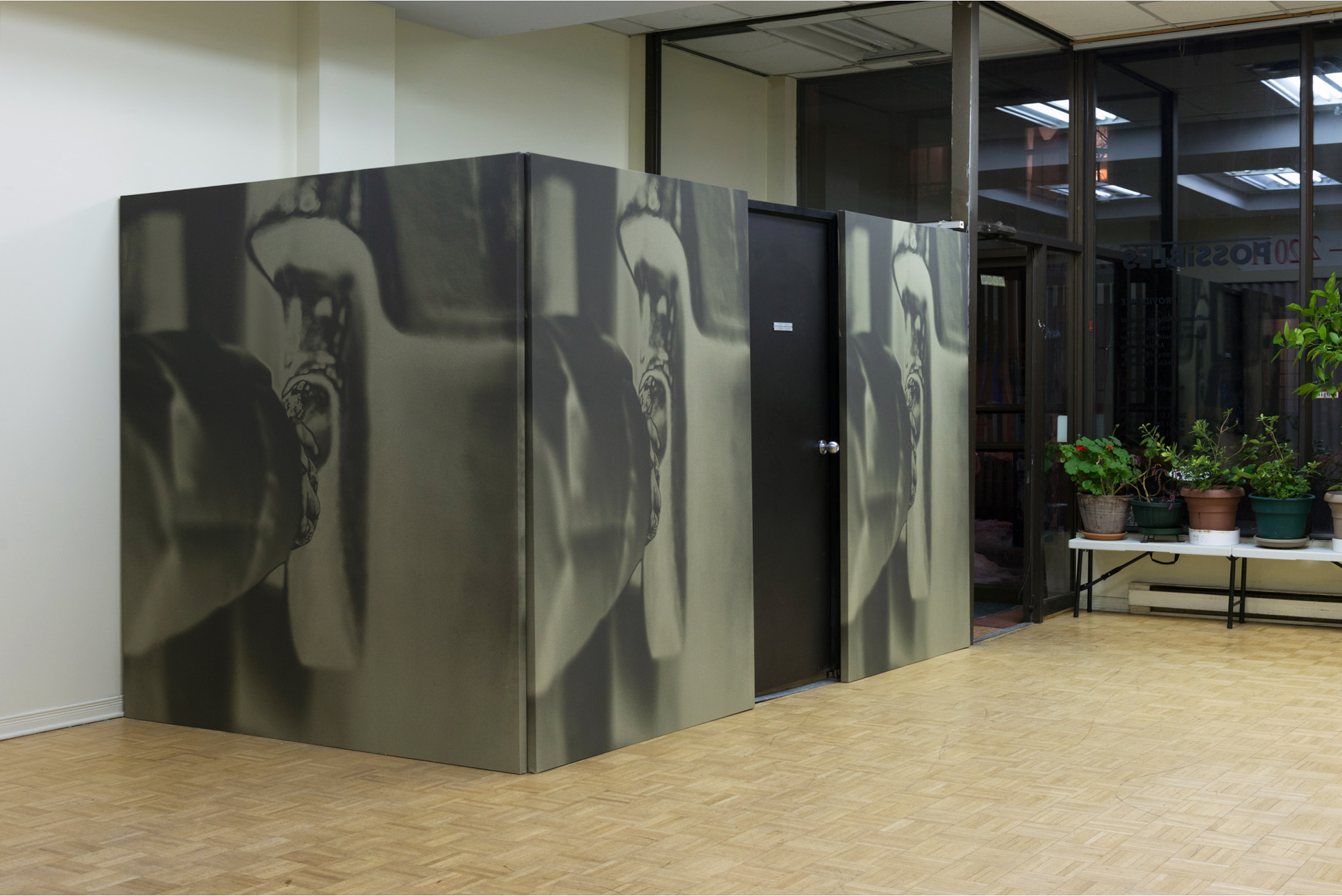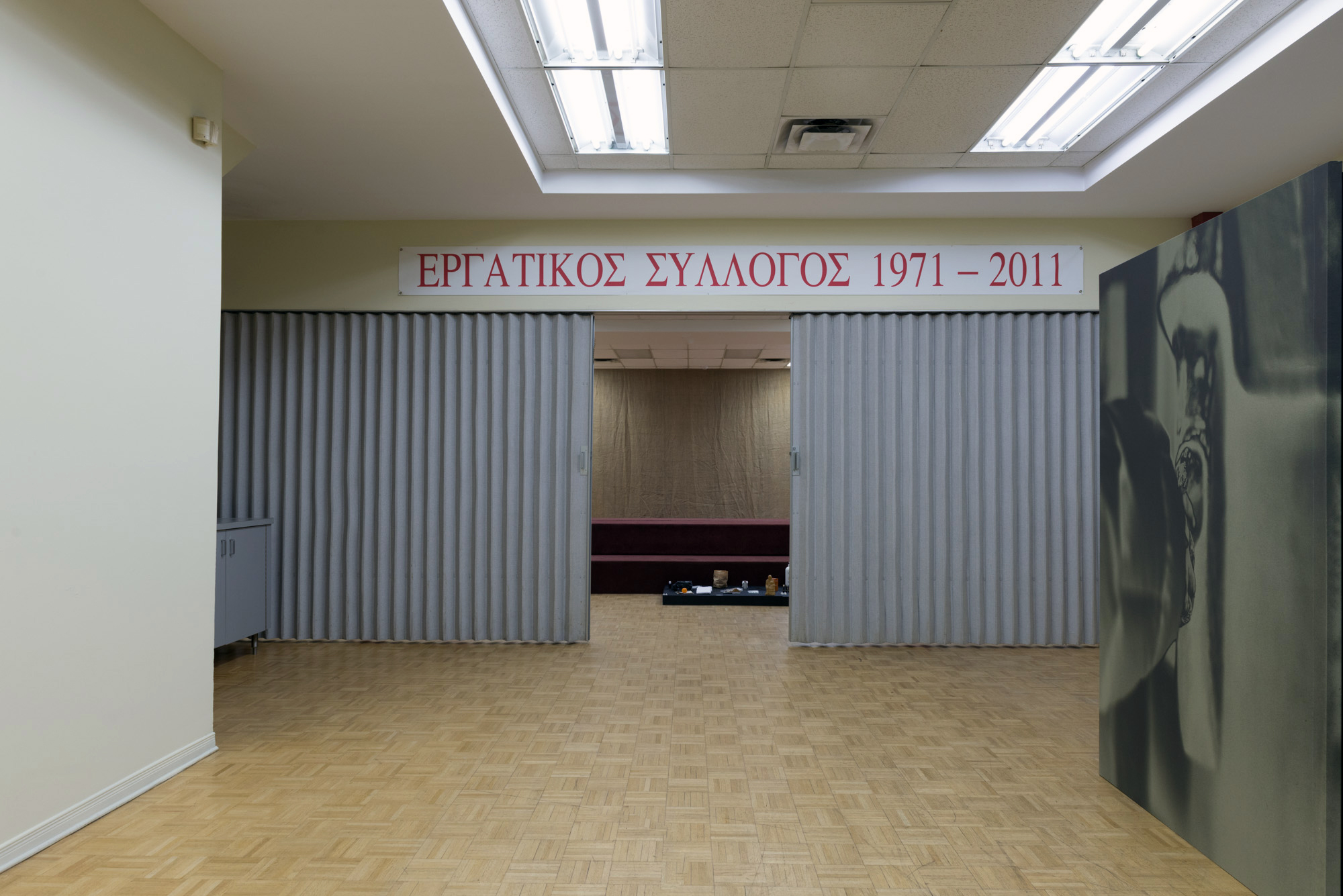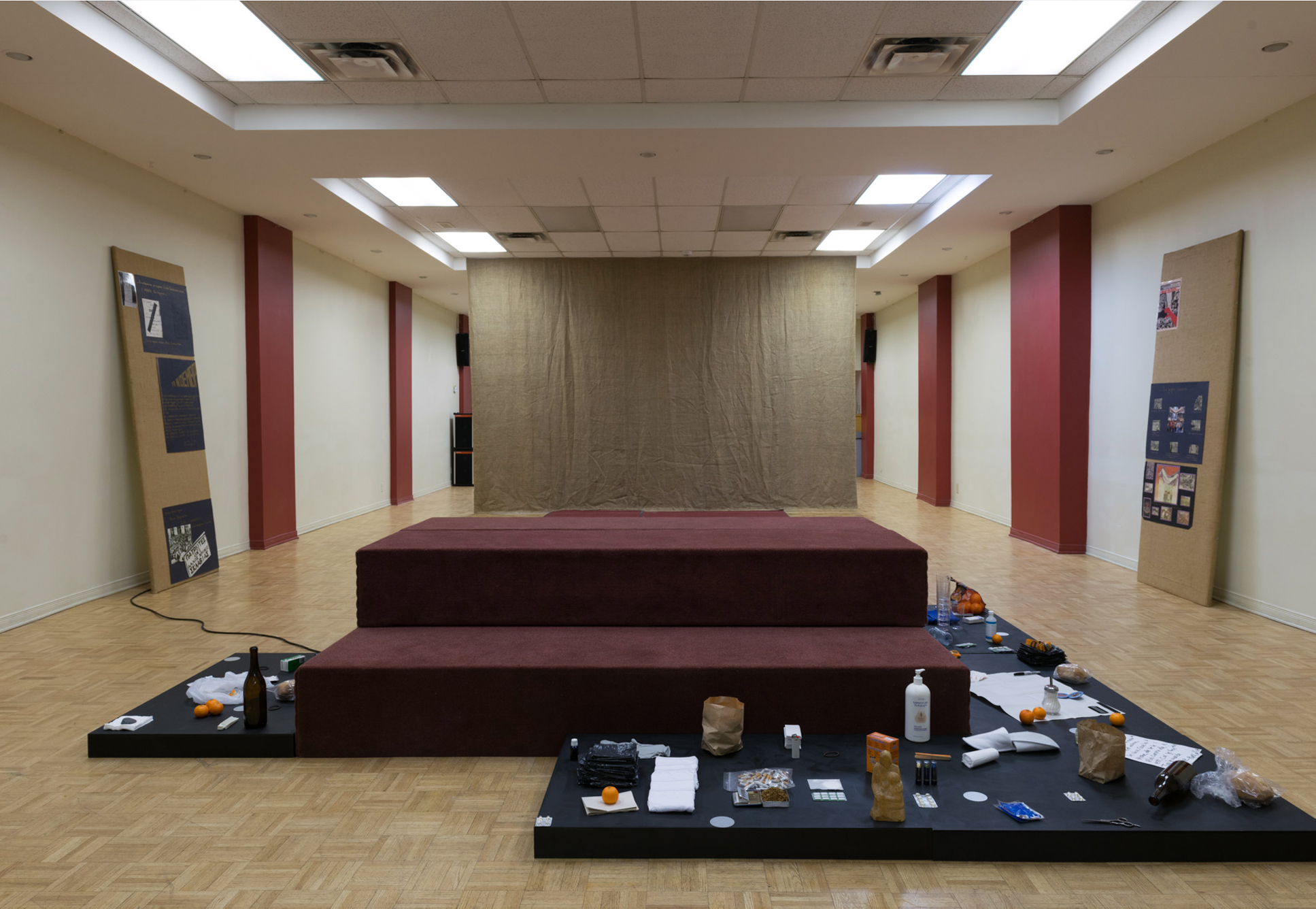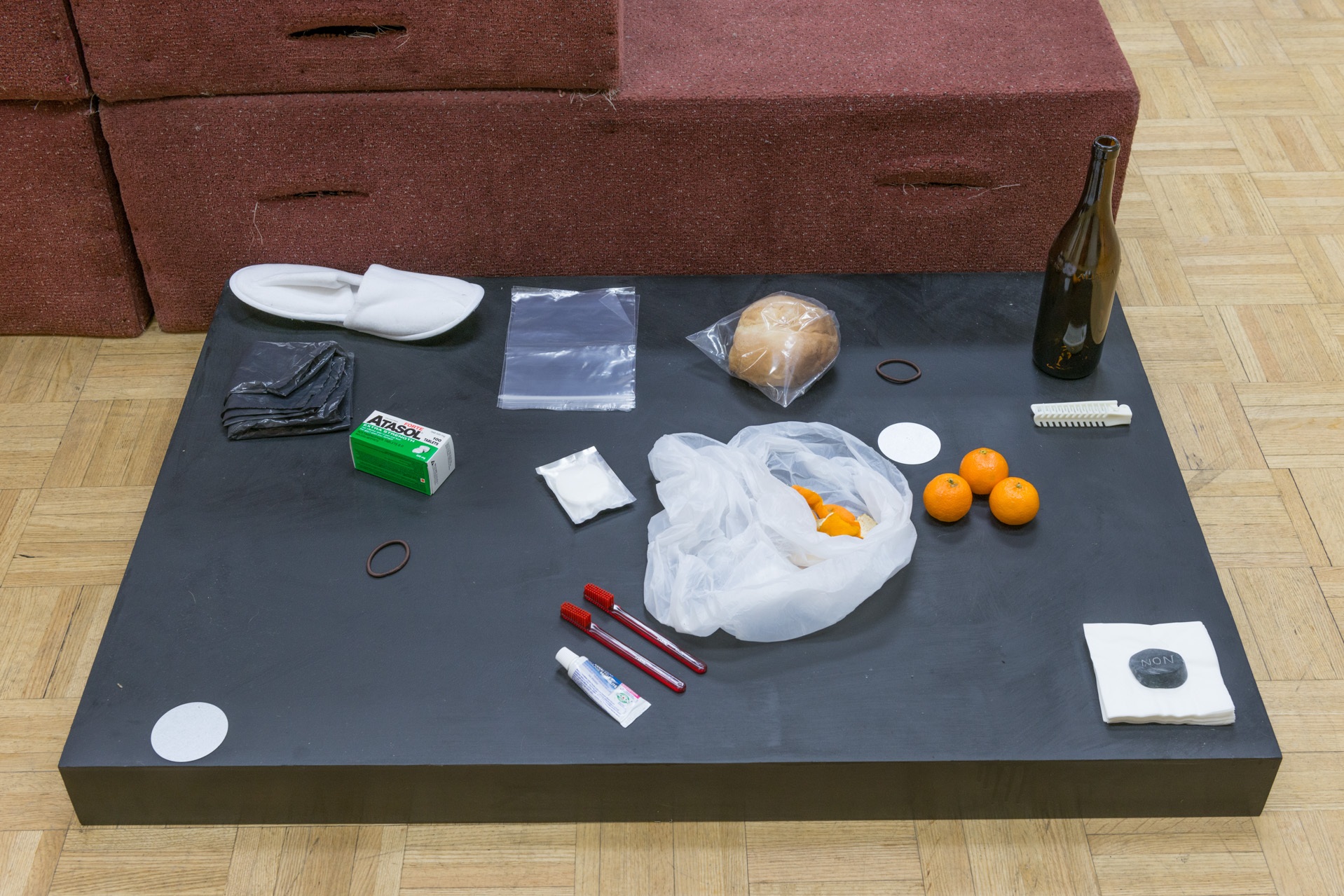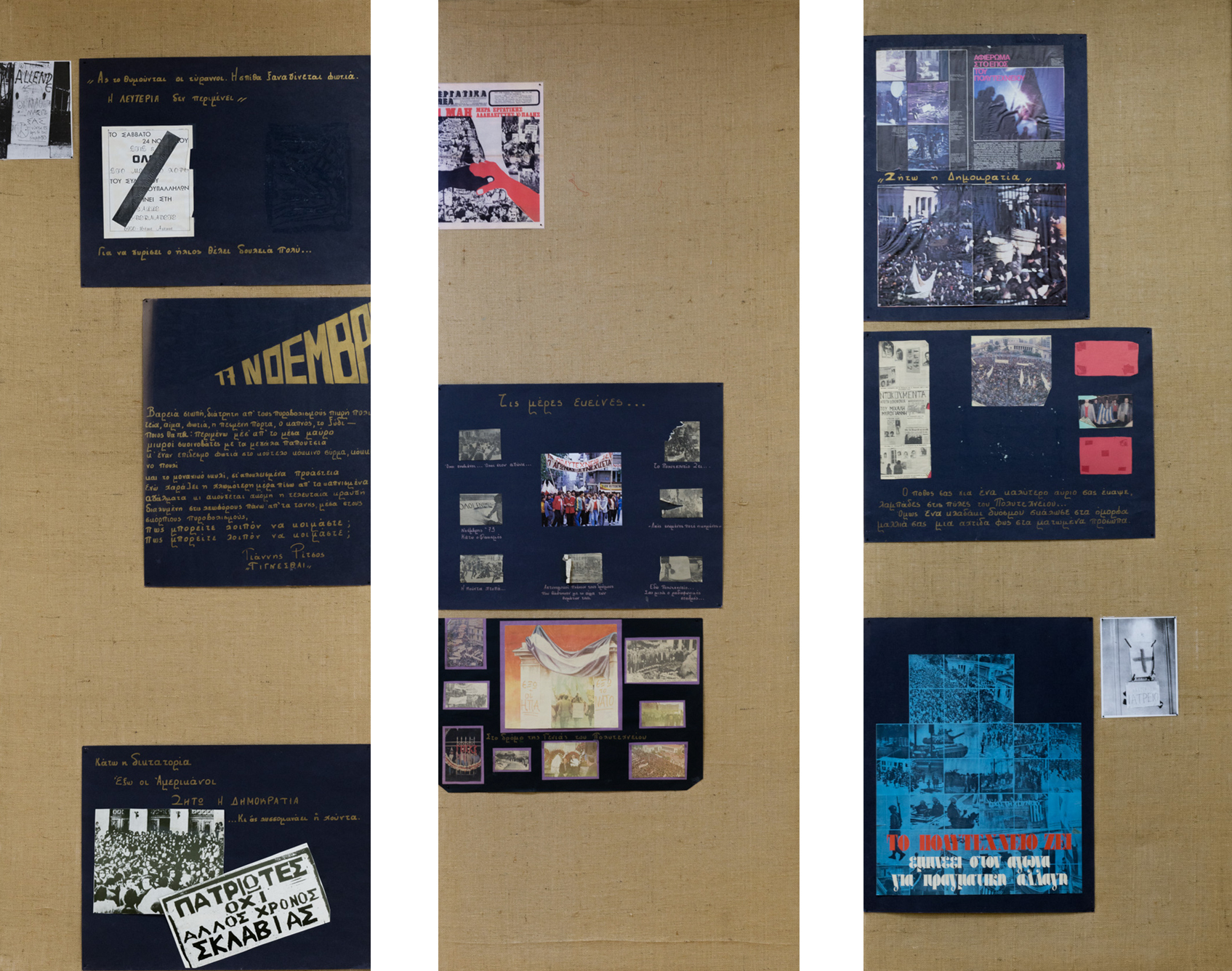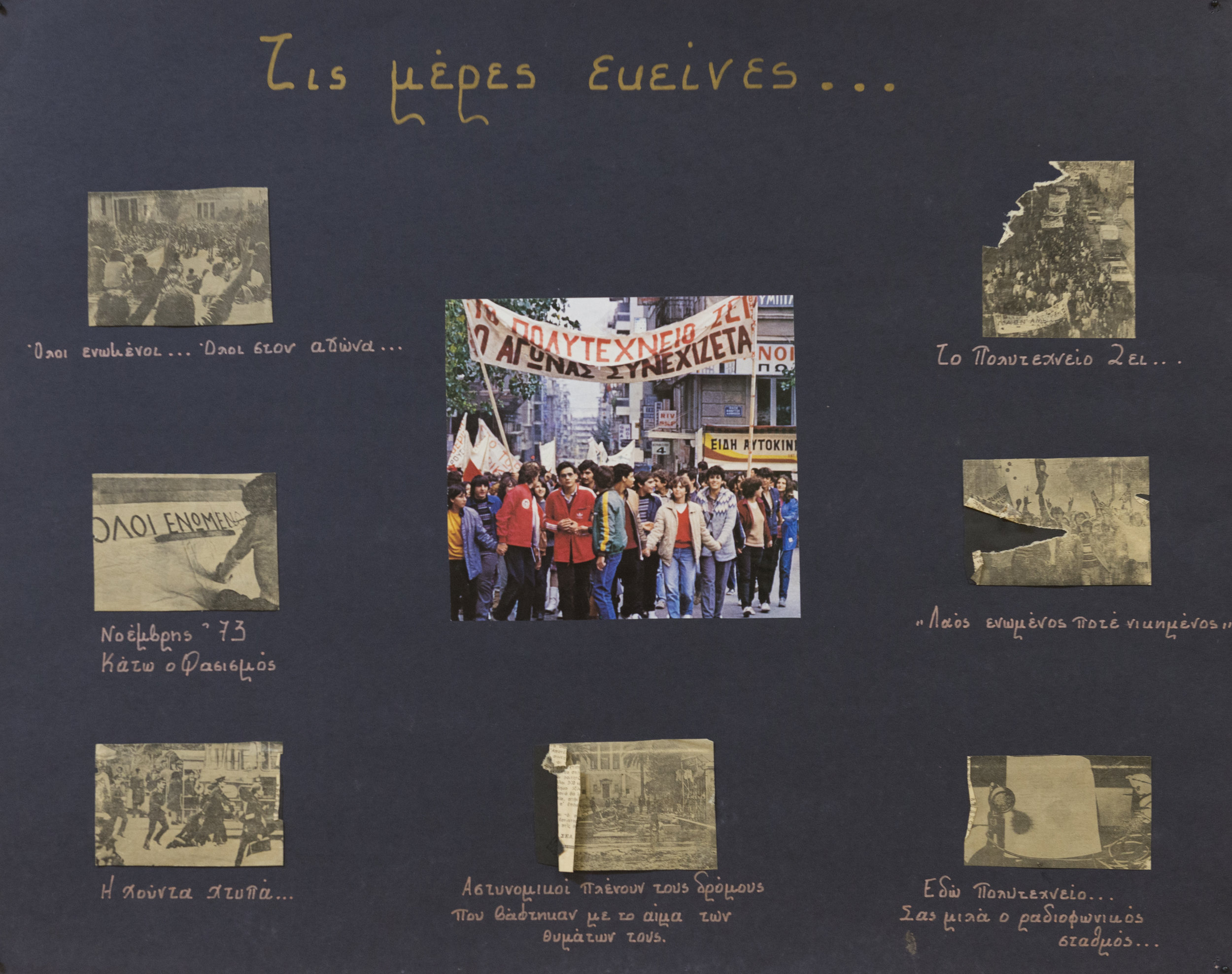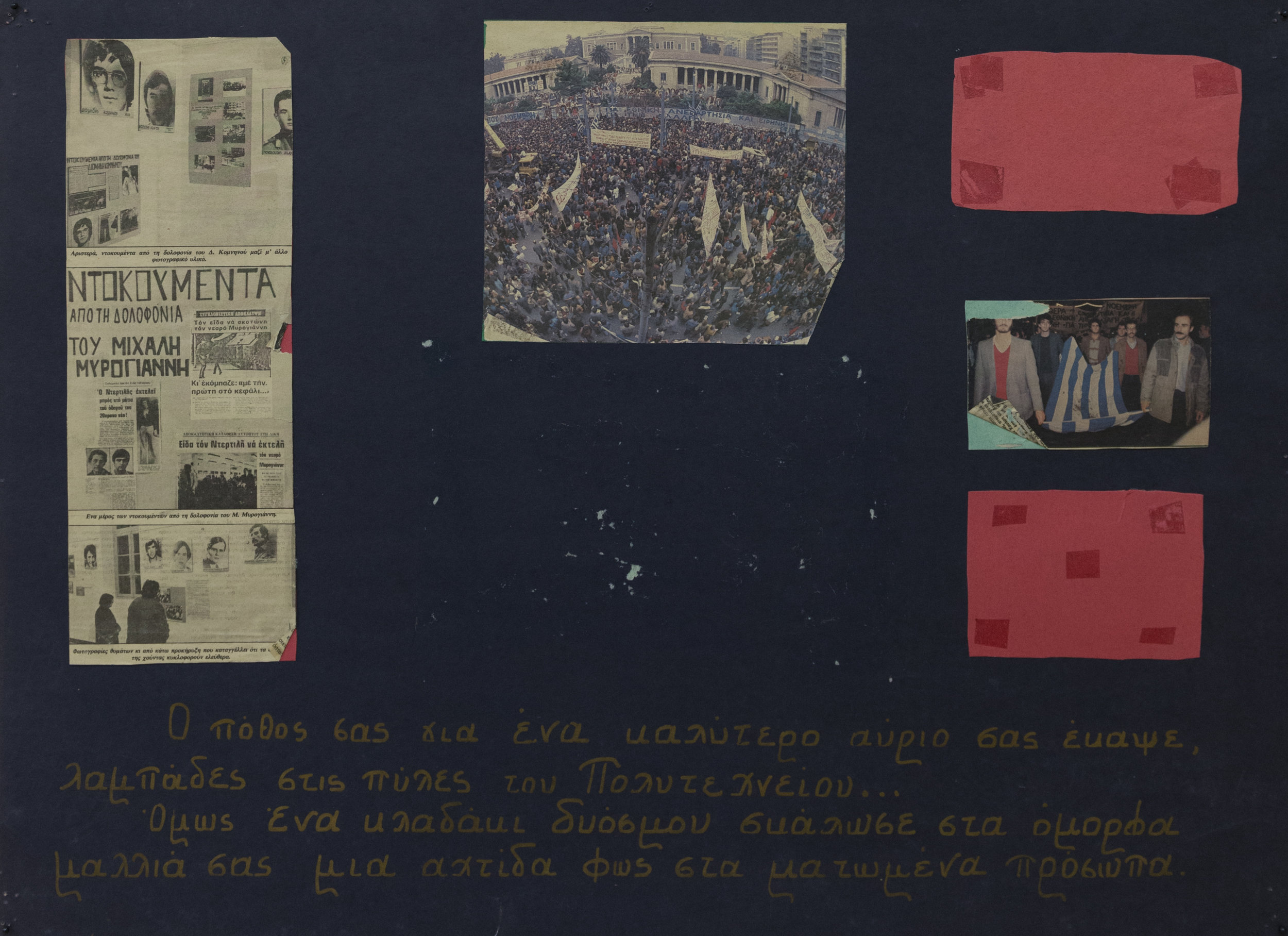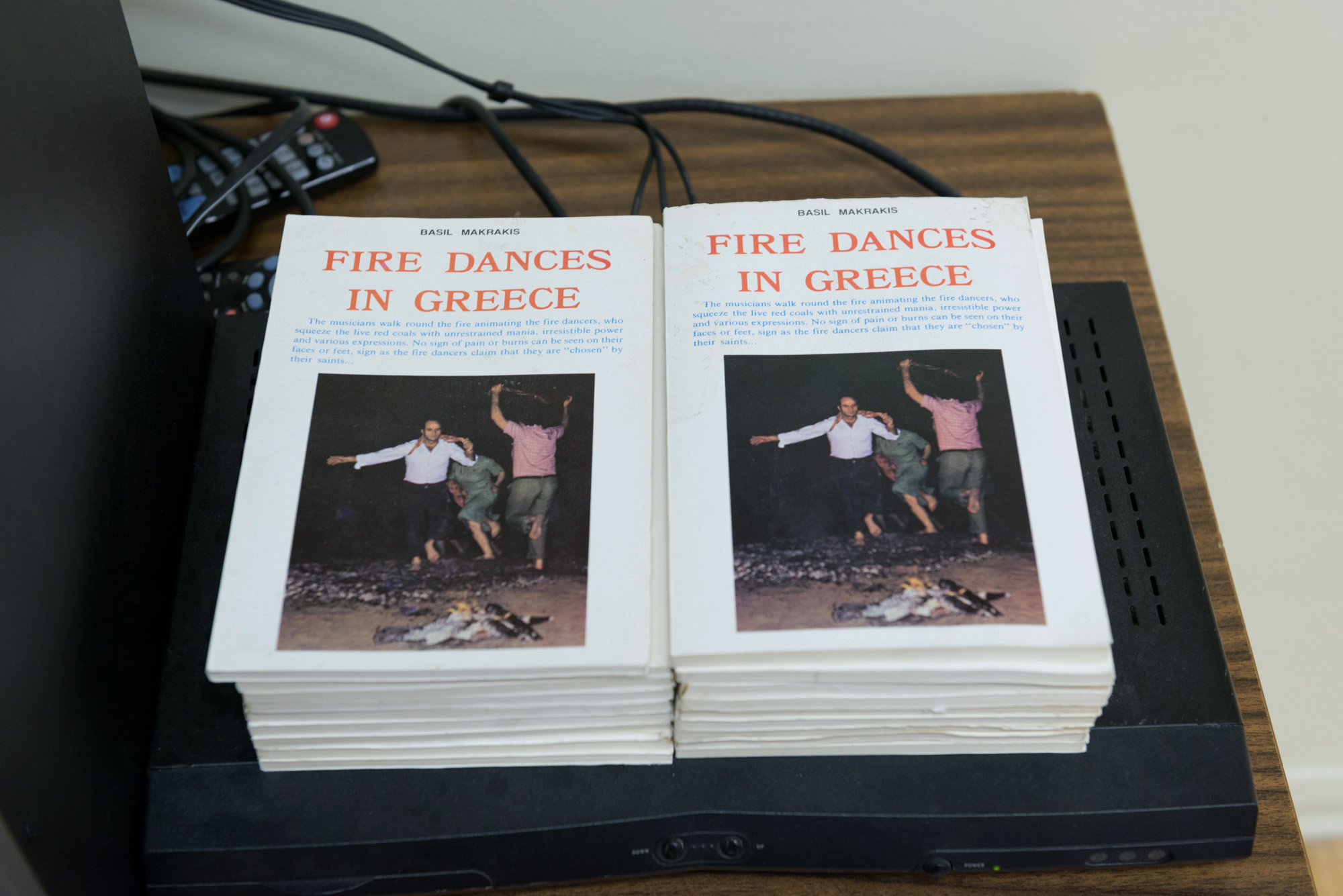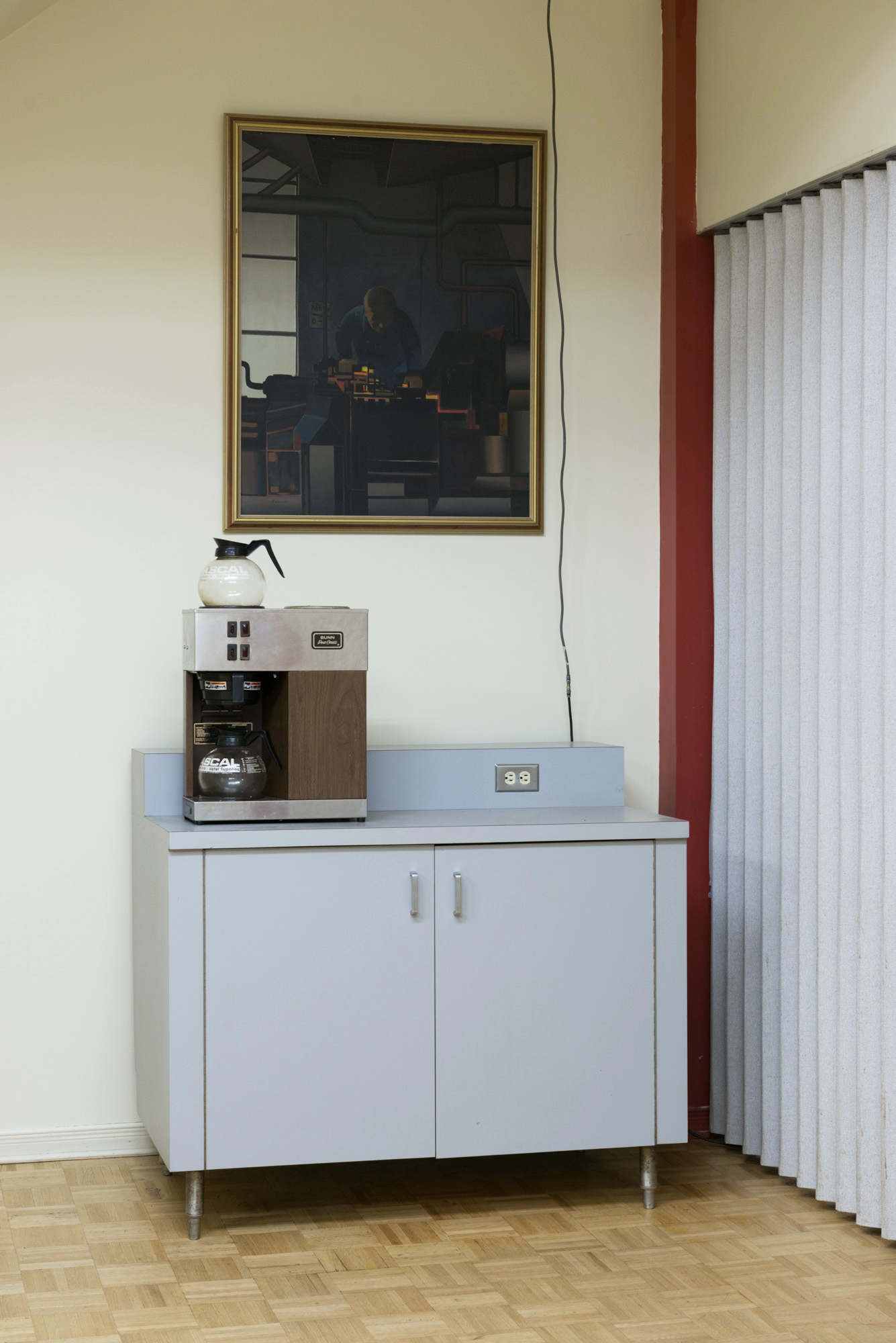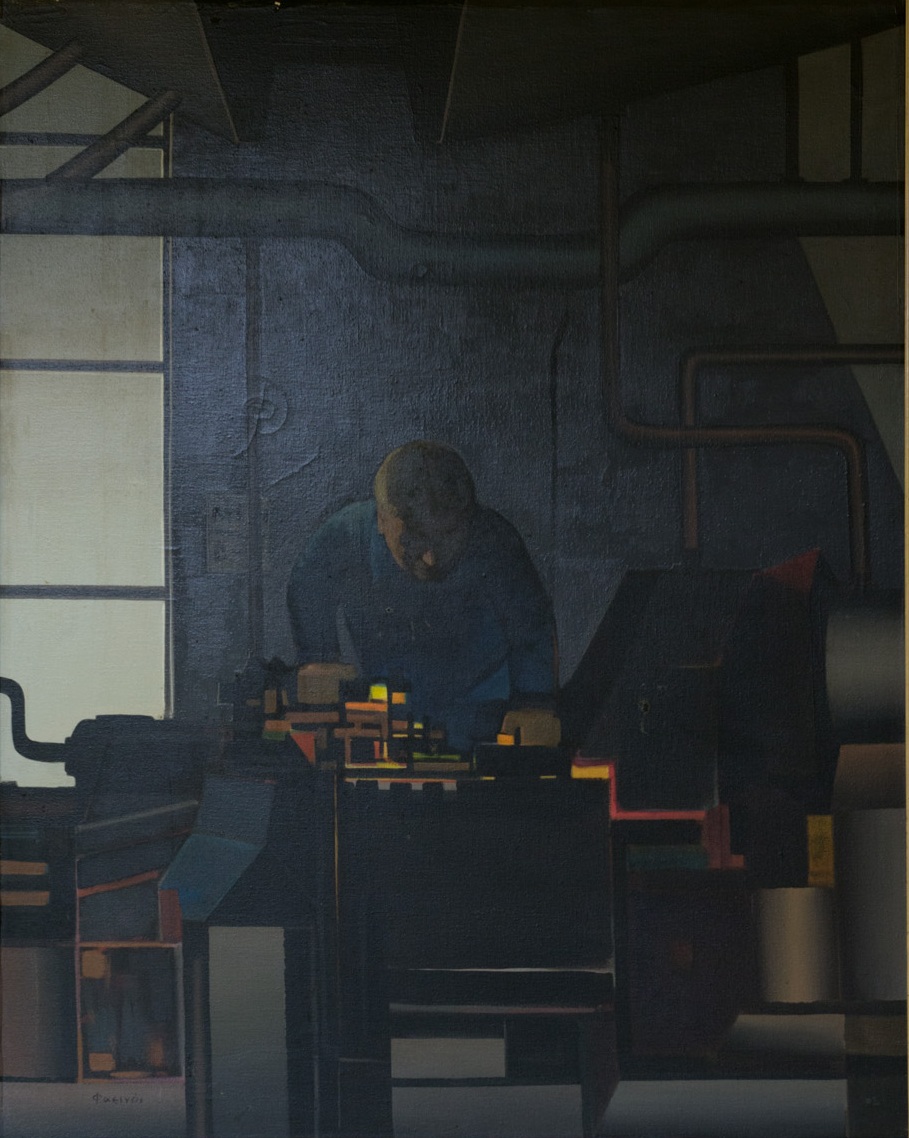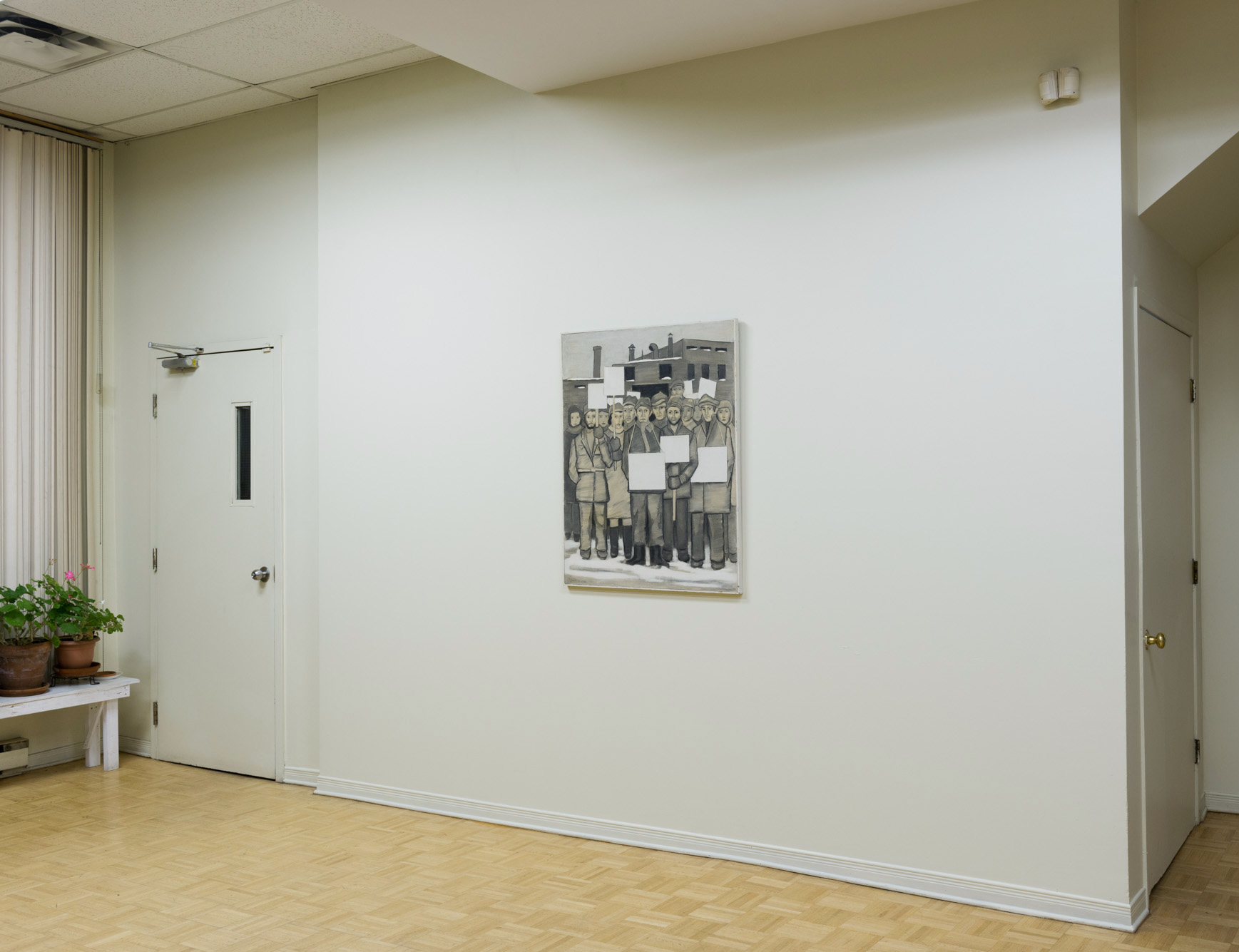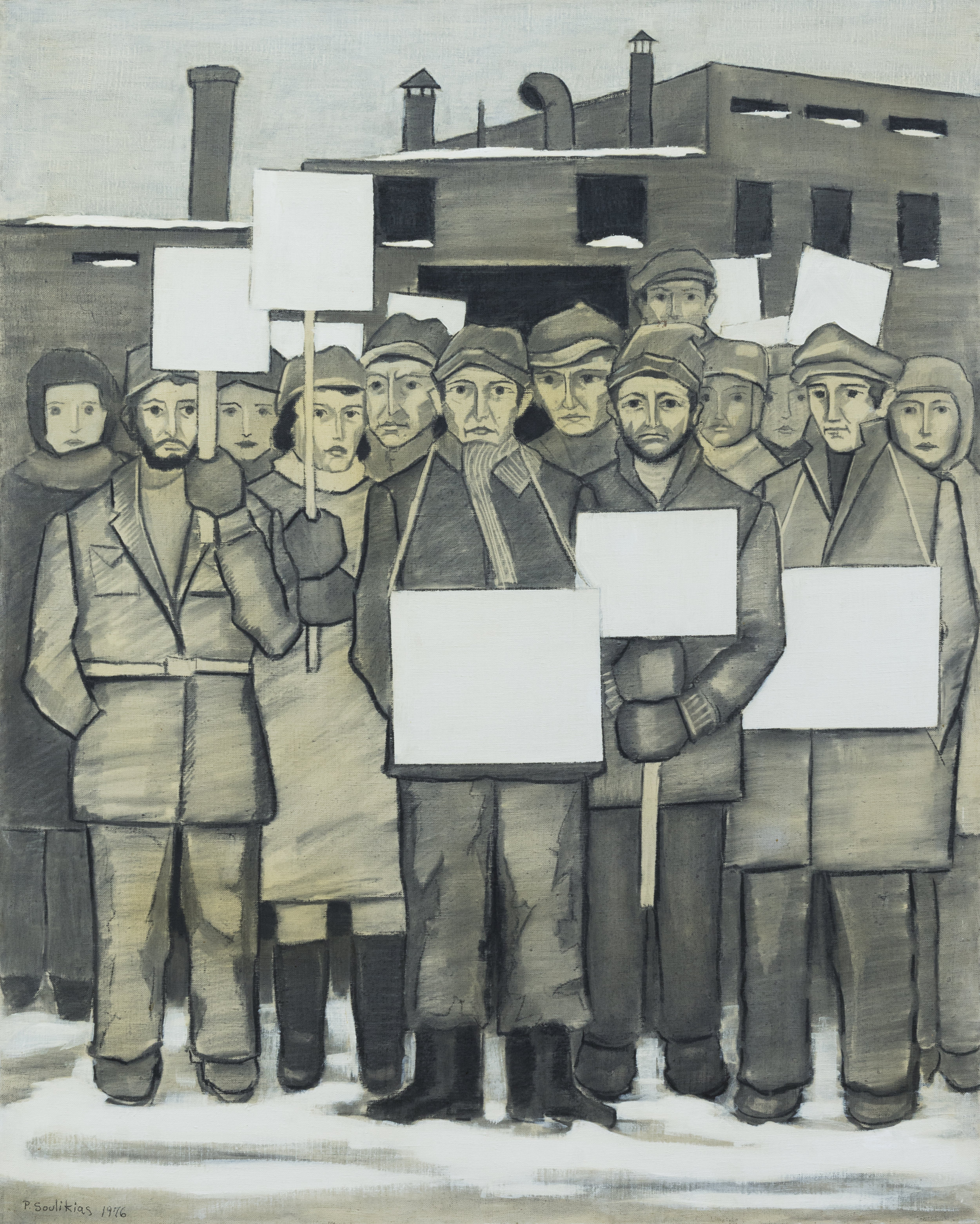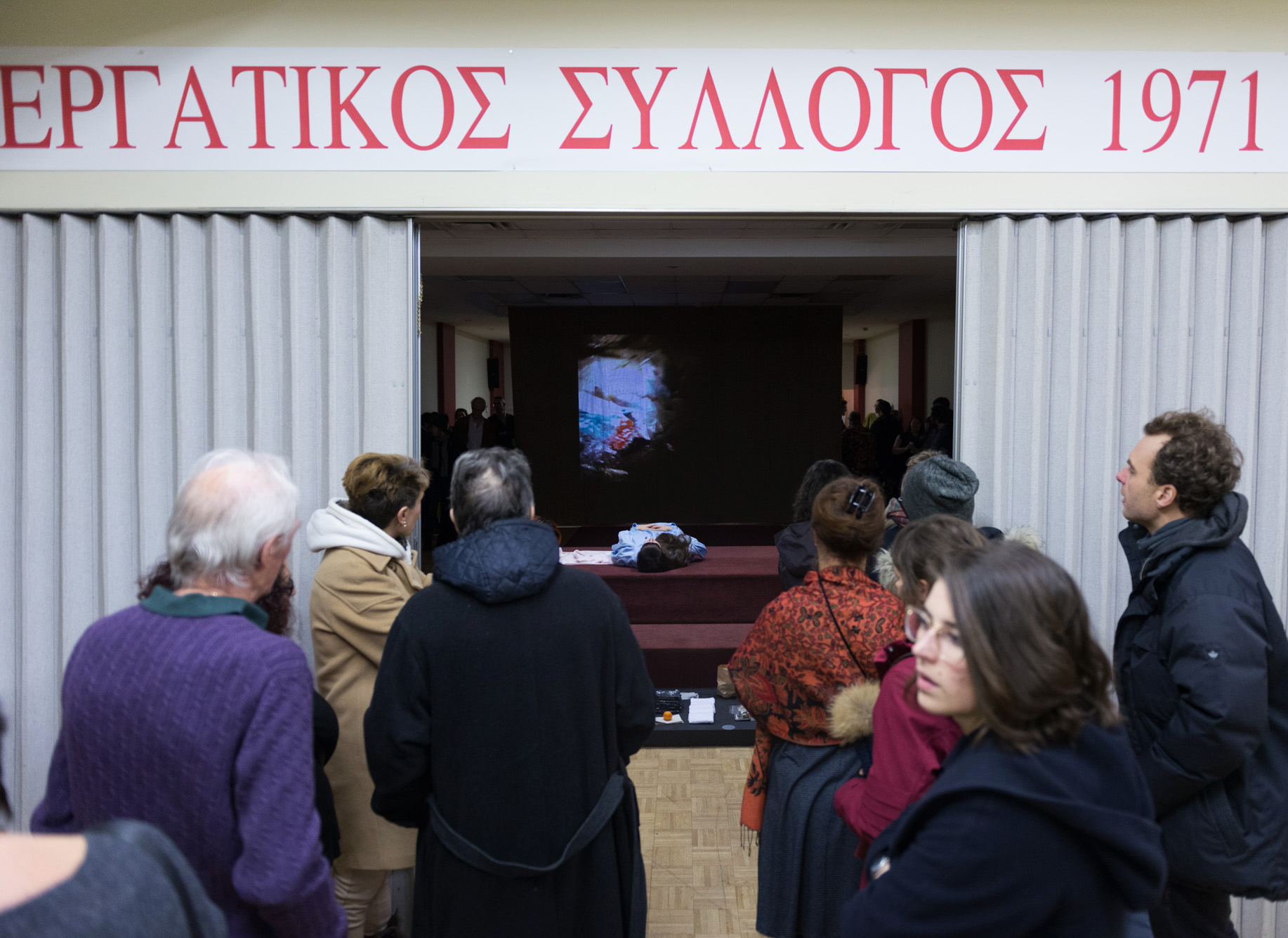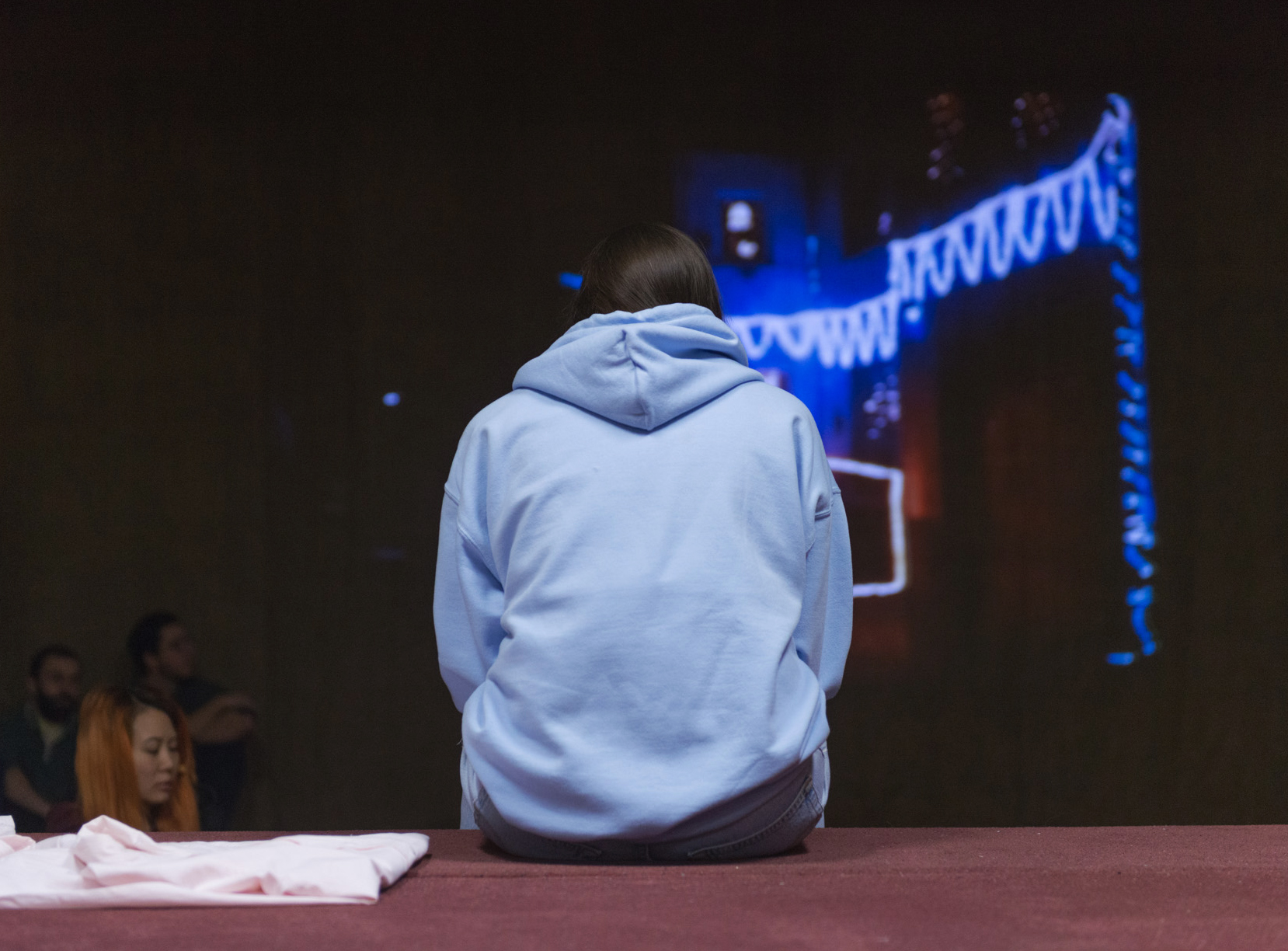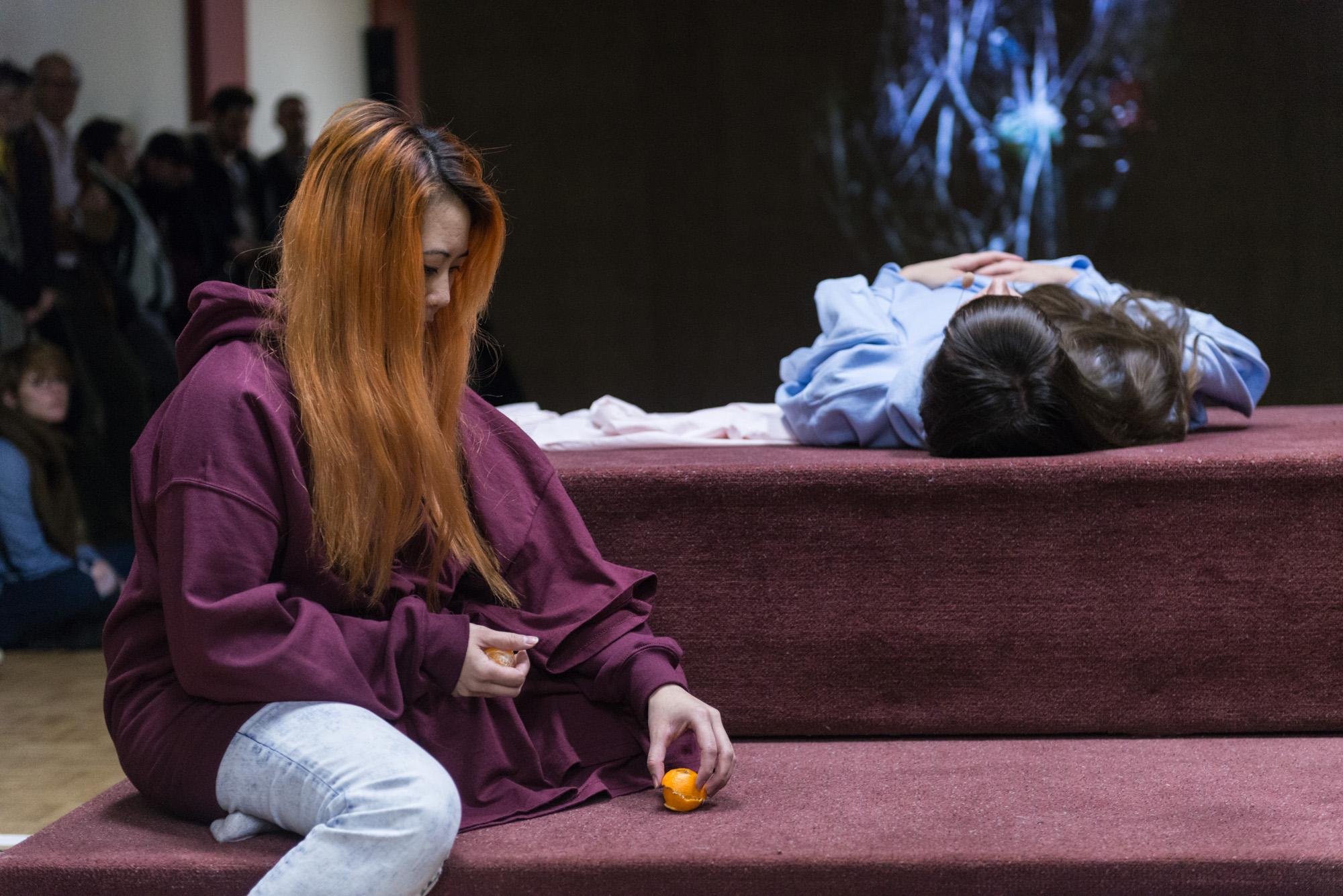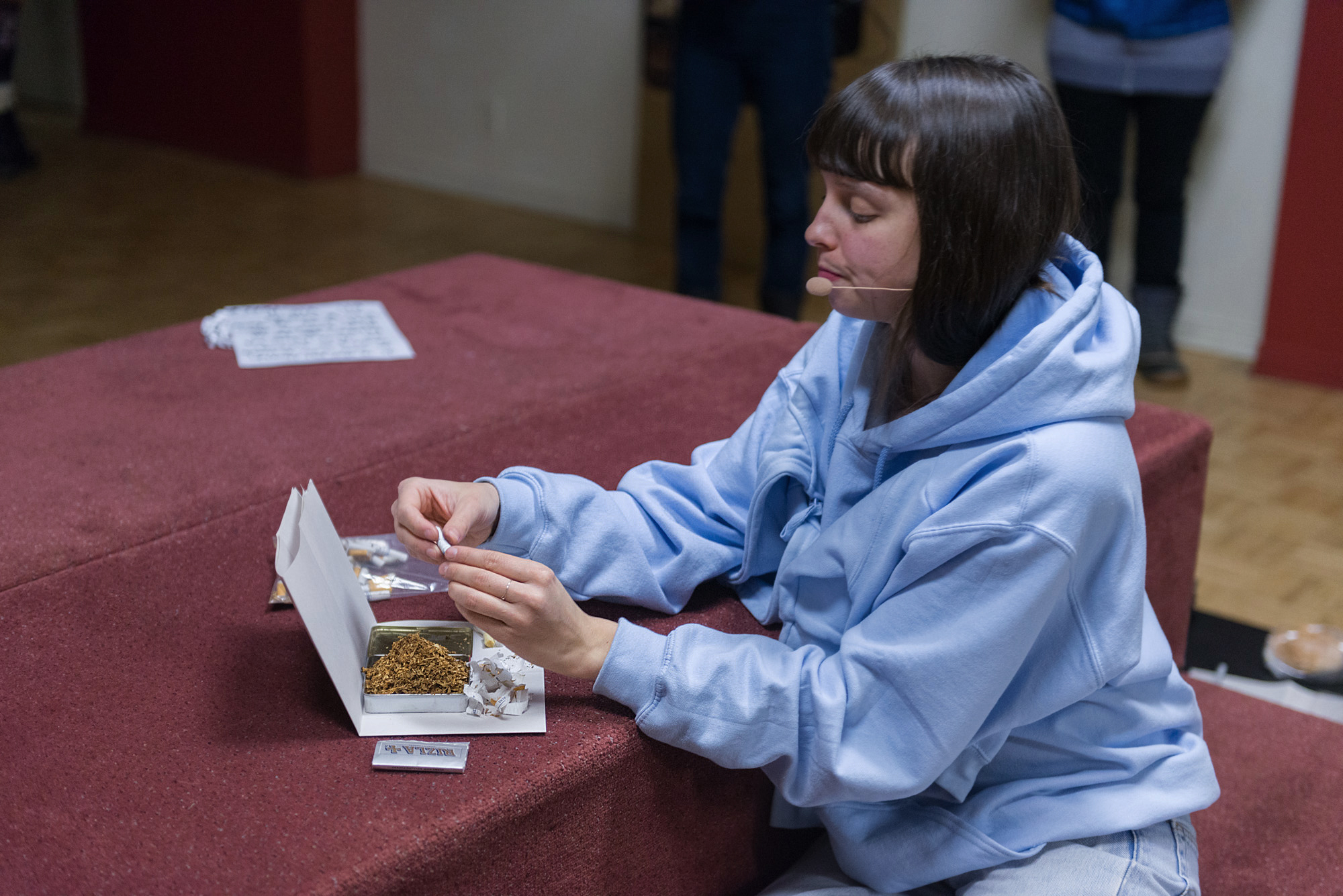Providence, 2017
Guillaume Adjutor Provost
In conversation with
Sarah Chouinard-Poirier,
Angie Cheng,
François Pisapia,
Irène Fournaris
Association des travailleurs grecs du Québec / Clark / La SERRE, Montreal
In his response to a book by Thomas Piketty titled, Le capital au XXIe siècle (Capital in the Twenty-First Century), American philosopher Harry G. Frankfurt argues that economic inequality should not be the main focus of our concern if the latter is motivated by a kind of surreptitious moralism. Instead, a better approach would be to abandon the ideals of equality in favour of a collective consideration of the notion of “sufficiency”. According to Frankfurt, individuals should not be preoccupied with having just as much, but rather with having just enough. But how does one determine individual needs, especially when these are affected by a material insecurity linked to class, immigration, gender and age?
Many organizations fight against the living conditions imposed by economic precariousness. They become forces for transformation and invite us to trust in the mobilization of their agents. The project Providence will be presented at the Association des travailleurs grecs du Québec, an organization that aims to help Montreal’s Hellenic community by providing tools that allow them to self organize, to deal with problems experienced in their host communities, and to defend and claim their rights. By building on the history of the Association, this exhibition acts as an elliptical narrative on uncertainty, but also on objects of hope: desires, aspirations and needs.
The installation begins with a photographic montage that depicts a handshake between an individual and a statue of Émilie Gamelin; an extended hand as the symbol of a brighter tomorrow. The main room at the Association features figurative works by Paul Soulikias and Merlie Papadopoullos, as well as a collection of collaged, didactic panels describing the events of the Athens Polytechnic uprising in 1973, created by Irene Fournaris over the past 40 years. Elsewhere, an ethereal and roving video by François Pisapia takes us on a meandering path through non-capitalisable spaces. What does it mean to walk on the fringes of a private world, and a world possessed? An opening-night performance, co-produced with Sarah Chouinard-Poirier and Angie Cheng, takes as its starting point a series of writing workshops held with homeless women who frequent Herstreet, a Montreal non-profit organization. The resulting work is a lyrical expression of the needs and desires of these women to transform their everyday lives.
Through the close collaboration of Sarah Chouinard-Poirier, Angie Chen, François Pisapia and Irène Fournaris, Providence engages in the logic of the anecdote through the language of photography, video, performance, and the archive. As such, the most enigmatic works, in the true sense of the word enigma, have the power to be the most engaging.
Photo Credits : Paul Litherland
Artworks
Guillaume Adjutor Provost
La main d’Émilie Gamelin [The Hand of Emilie Gamelin], 2017
Solarized 35 mm film and digital print on canvas covering an office cubicle
Series of 3 variants
209 cm x 200 cm / 209 cm x 137 cm /209 cm x 127 cm
Sarah Chouinard-Poirier and Angie Cheng
Je veux, 2017
Performance made in collaboration with Herstreet
Clothing by Ben Lafaille
François Pisapia
De nuit, 2017
Video loop
14 minutes
Irène Fournaris
Political posters, circa 1980
Collection of the Association
Paul Soulikias
Untitled, 1976
Oil on canevas
72 cm x 47 cm
Collection of the Association
Untitled, 1978
Oil on canevas
83 cm x 56 cm
Collection of the Association
------------------------------------------------------------------
Providence, 2017
Association des travailleurs grecs du Québec / Clark / La SERRE, Montréal
Guillaume Adjutor Provost
En conversation avec
Sarah Chouinard-Poirier,
Angie Cheng,
François Pisapia,
Irène Fournaris
La réponse du philosophe américain Harry G. Frankfurt au texte de Thomas Piketty « Le capital au XXIe siècle » porte à comprendre que les inégalités économiques ne devraient pas constituer le centre de toutes les attentions; en considérant que ces dernières soient motivées par un moralisme souterrain. Plutôt, il s’agirait de délaisser les idéaux d’égalité afin de réfléchir collectivement à la notion de « suffisance ». Selon le point de vue de Frankfurt, il serait accessoire que les individus aient autant ; l’intérêt serait plutôt qu’ils en aient assez. Mais alors, comment déterminer les besoins individuels ; surtout lorsque ceux-ci sont affectés par la précarité matérielle liée aux questions de classe, d’immigration, de genre ou d’âge ?
Nombre d’organismes luttent contre les conditions de vie imposées par la précarité économique. Ils s’inscrivent comme des acteurs de transformation et nous appellent à faire confiance en la mobilisation de leurs agents. Le projet Providence est présenté dans les locaux de l’Association des travailleurs grecs du Québec qui vient en aide à la communauté hellénique de Montréal en leur offrant des outils pour s’organiser, faire face aux problèmes vécus dans leur société d’accueil, défendre et réclamer leurs droits. En prenant appui sur l’historique du lieu où est articulée l’exposition, Providence est présenté comme un récit elliptique sur l’incertitude, mais aussi sur les objets de l’espérance : les désirs, les aspirations et le soin.
L’installation débute avec un montage photographique qui documente une poignée de main entre un individu et la statue d’Émilie Gamelin. Une main tendue qui aurait la vertu d’attirer des lendemains favorables. La grande salle de l’Association est ponctuée d’œuvres figuratives de Paul Soulikias et de Merlie Papadopoullos, ainsi que d’une sélection de panneaux didactiques qui relatent les évènements survenus à l’école polytechnique d’Athènes en 1973 ; des collages réalisés au courant des 40 dernières années par Irène Fournaris. Éthérée et errante, l’œuvre vidéo de François Pisapia nous plonge dans une déambulation somnambule en des lieux non capitalisables. Qu’est-ce que de marcher en marge d’un monde privé, d’un monde possédé ? Présentée lors du vernissage, la performance coproduite avec Sarah Chouinard-Poirier et Angie Cheng, prend comme amorce des ateliers d’écritures réalisés avec des femmes en situation d’itinérance et fréquentant l’organisme La Rue des femmes de Montréal (Herstreet). L’œuvre qui en résulte articule une manifestation lyrique des besoins, mais aussi des désirs de transformer le quotidien.
À travers les langages de la photographie, de l’archive, de la vidéo et de la performance, Providence est le résultat d’une étroite collaboration avec Sarah Chouinard-Poirier, Angie Cheng, François Pisapia et Irène Fournaris. Certes, l’exposition nous engage dans une logique de l’anecdote. Dès lors, les œuvres les plus énigmatiques, pour peu qu'on fasse un bon usage de l'énigme, ont le pouvoir de devenir les plus conviviales.
Crédits photo : Paul Litherland
Œuvres exposées
Guillaume Adjutor Provost
La main d’Émilie Gamelin, 2017
Pellicule 35 mm solarisée et impression numérique sur toile couvrant un cubicule de bureau
Serie de 3 variantes
209 cm x 200 cm / 209 cm x 137 cm /209 cm x 127 cm
Sarah Chouinard-Poirier and Angie Cheng
Je veux, 2017
Performance faite en collaboration avec Herstreet
Vêtements par Ben Lafaille
François Pisapia
De nuit, 2017
Boucle vidéo
14 minutes
Irène Fournaris
Affiches politiques, circa 1980
Collection de l’Association
Paul Soulikias
Sans titre, 1976
Huile sur toile
72 cm x 47 cm
Collection de l’Association
Sans titre, 1978
Huile sur toile
83 cm x 56 cm
Collection de l’Association
